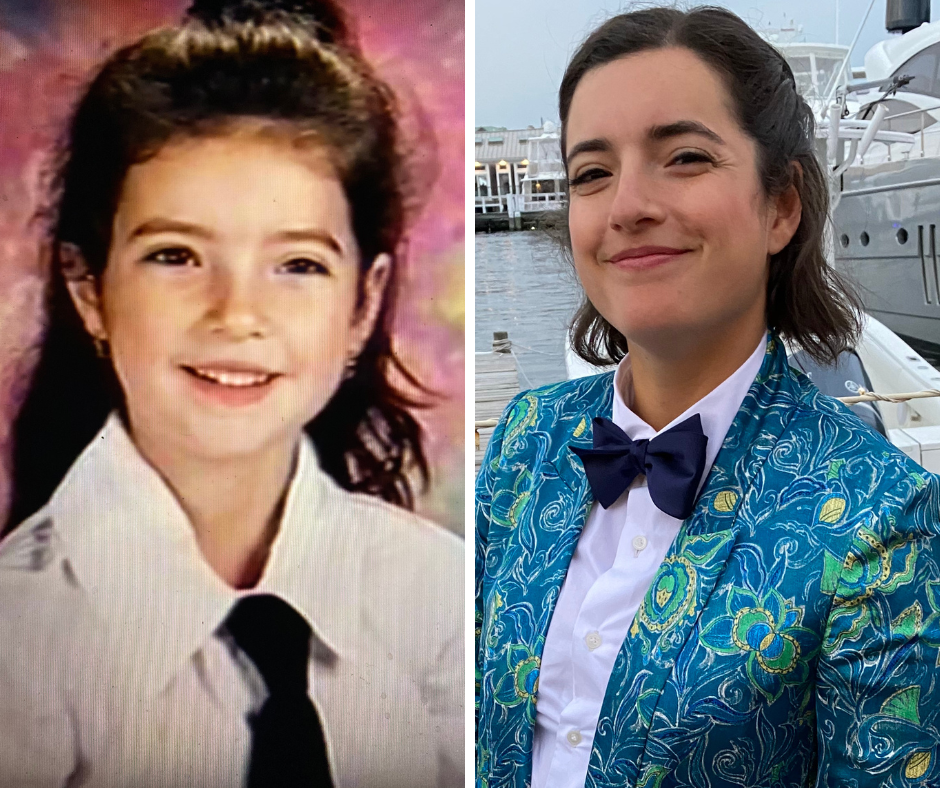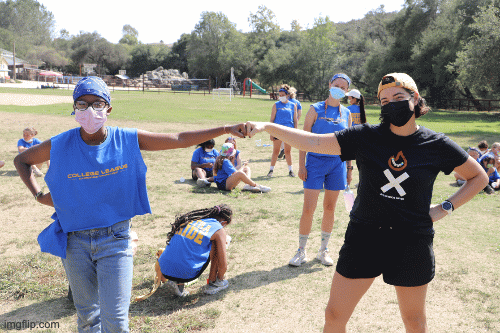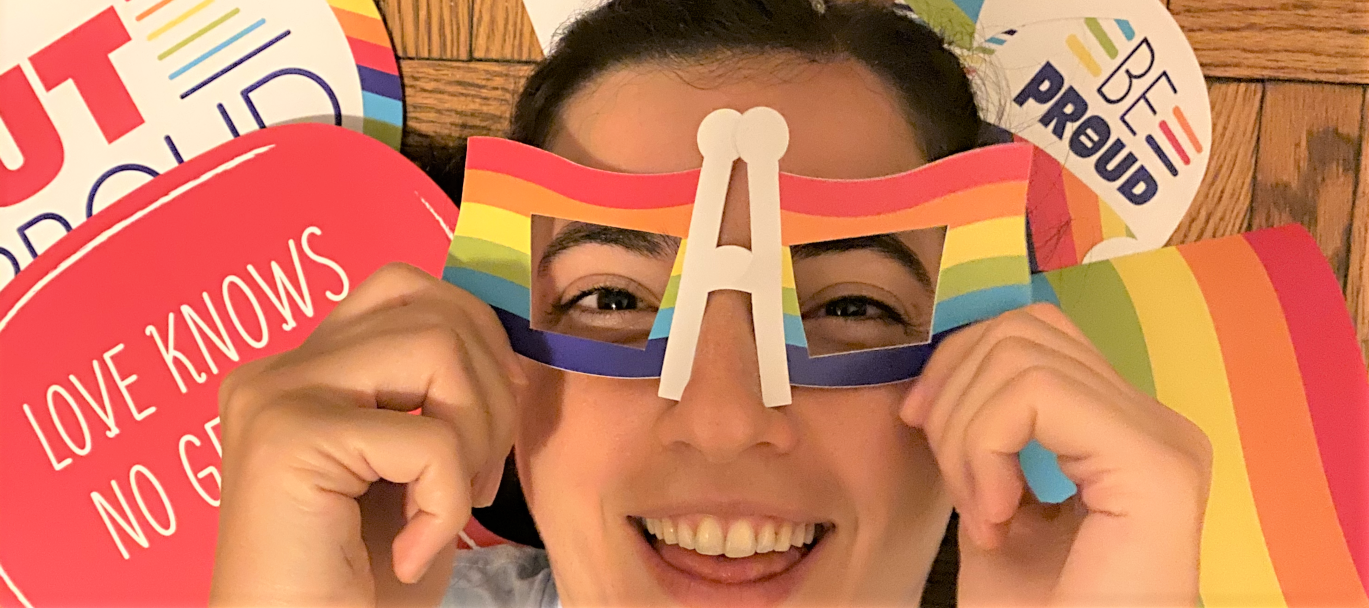I opened my laptop and my fingers just automatically knew what to do. “Take the ACE (adverse childhood experience) test,” I typed, for the hundredth time, into Google. There was no good reason for me to be typing this again. I already knew the answer. It was a 4. The number where things start getting serious. With a number of 4 or more, the likelihood of chronic pulmonary lung disease increases 390 percent; hepatitis, 240 percent; depression, 460 percent; attempted suicide, 1,220 percent.
And then there was the whole being queer thing. LGBTQIA+ individuals are 2.5 times more likely to experience depression, anxiety, and substance misuse compared with heterosexual individuals. LGBTQIA+ people are 92% more likely to think about suicide, 75% more likely to plan suicide, and 88% more likely to actually attempt suicide that resulted in no or minor injury.

Jesse Moss: 25 years apart
The obvious conclusion: the odds were against me.
I was raised by an addict, which comes with its own set of frightening stats, and spent much of my childhood trying to people-please and get approval. I was; always aiming for the 100 on my test, joining every sport or club I could, and overall just pretending everything was hunky dory. So what happens when you obsessively seek approval to protect yourself? You lose your identity. Every time I discovered a new piece of my identity, it would get stuffed into the dusty catalog of me. I was so focused on the fake picture of me, that I lost sight of trying to know the real me.
My queerness was something I hid for a really long time. I knew all about the statistics I faced: looming depression, drug addiction, etc .and it was not something I was ready to claim. I also felt societal pressure to be heteronormative–from friends, family, and basically the whole world. I believed that I needed something “normal” about me. I couldn’t possibly be the girl living with an addict (later on, two addicts) AND GAY.
But in 2012, it got even worse. My brother had died by suicide/overdose. More statistics: studies show that if one sibling died by suicide, the risk of the remaining sibling also dying by suicide was 3.19x amongst women. Welp. My initial reaction was to do the usual hide and pretend. So I did, for many years.

At Experience Camps in California, August 2021
But, there was something about my queerness that I felt rising to the surface. I never got to come out to my brother, even though I’m sure he knew (I wasn’t good at hiding it). So I started dipping my toe into what it might be like to not care what other people thought, or what statistics might say. I wanted to show the world my truth–even if just one piece of myself. The beauty of it was, that it would help kickstart opening myself up in other ways too.
I have no special sauce or secret to share around how to claim your queerness or any other parts of you that might be hard to share. For me, it just took time. It also took society moving slightly more towards equality and understanding. It took surrounding myself with only those who celebrated and held up my queerness, my grief, my story, my whole unique being. It took my brother dying. And it took me being more comfortable and grounded in myself so I knew what to do when the whispers, the microaggressions, and the people who looked down on me for it came around. I was ready to stand firm in who I am, and anyone who doesn’t support me can exit stage left.
What I’ve realized recently is, the odds are against everyone. One hundred percent of people you know and love, including you, will die. Everyone is going to experience something in their life that’s going to come with a set of statistics that can take your breath away. So with the odds decidedly not in your favor, the real question to ask is, “How can I make the most of what I have while I’m here?”
I found solace through community, groups of people who come together for something unique about them. Maybe it’s a pride parade, maybe you attend a class at the LGBTQIA+ center in your town, or maybe you throw an “L Word” viewing party. Whatever it is, let it bring people together.
I’ve also found a bigger purpose, like my favorite discovery, Experience Camps. It’s the nonprofit I’ve dedicated much of my adult life to that puts on no-cost, one-week camps for kids who have experienced the death of a parent, sibling, or primary caregiver. We know that those kids have odds stacked against them. We know approximately 10% of them are queer. We know they show up with a similar set of statistics that I do. But that’s part of what makes it so special. We are all people who aren’t fully “seen” for who we are in “the real world” coming together for a shared experience.
At Experience Camps one of our core values is, “Come as you are unless you’re a jerk.” I not only helped create it for my job, but I live by it and encourage others to live by it too.
Jesse Moss is the Senior Marketing Manager at Experience Camps, a nonprofit that champions the nation’s 5.6 million grieving children and works to create a more “grief smart” culture. Drawing on her experience as a Digital Strategist in the Obama Administration, she also oversees the nonprofit’s fast-growing TikTok channel — reaching millions with humor, empathy, and joy as well as grief.
